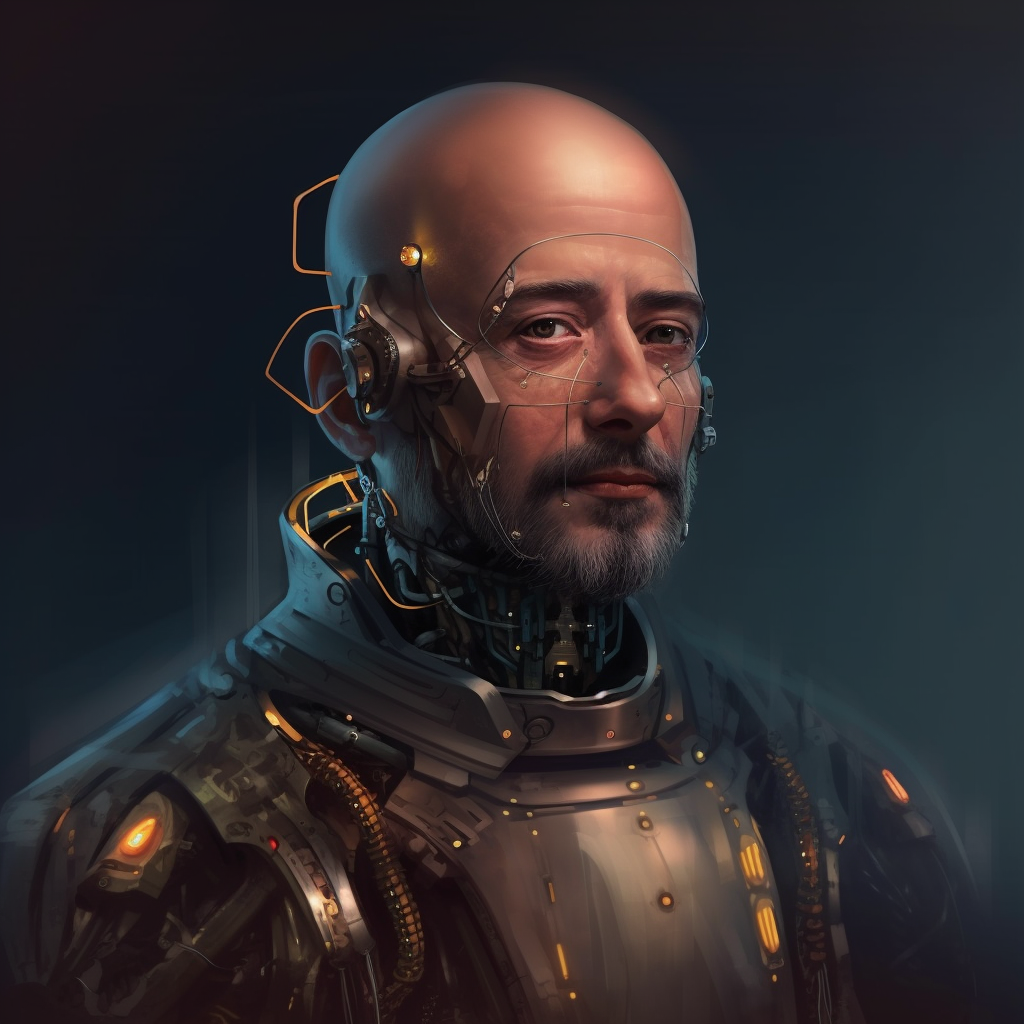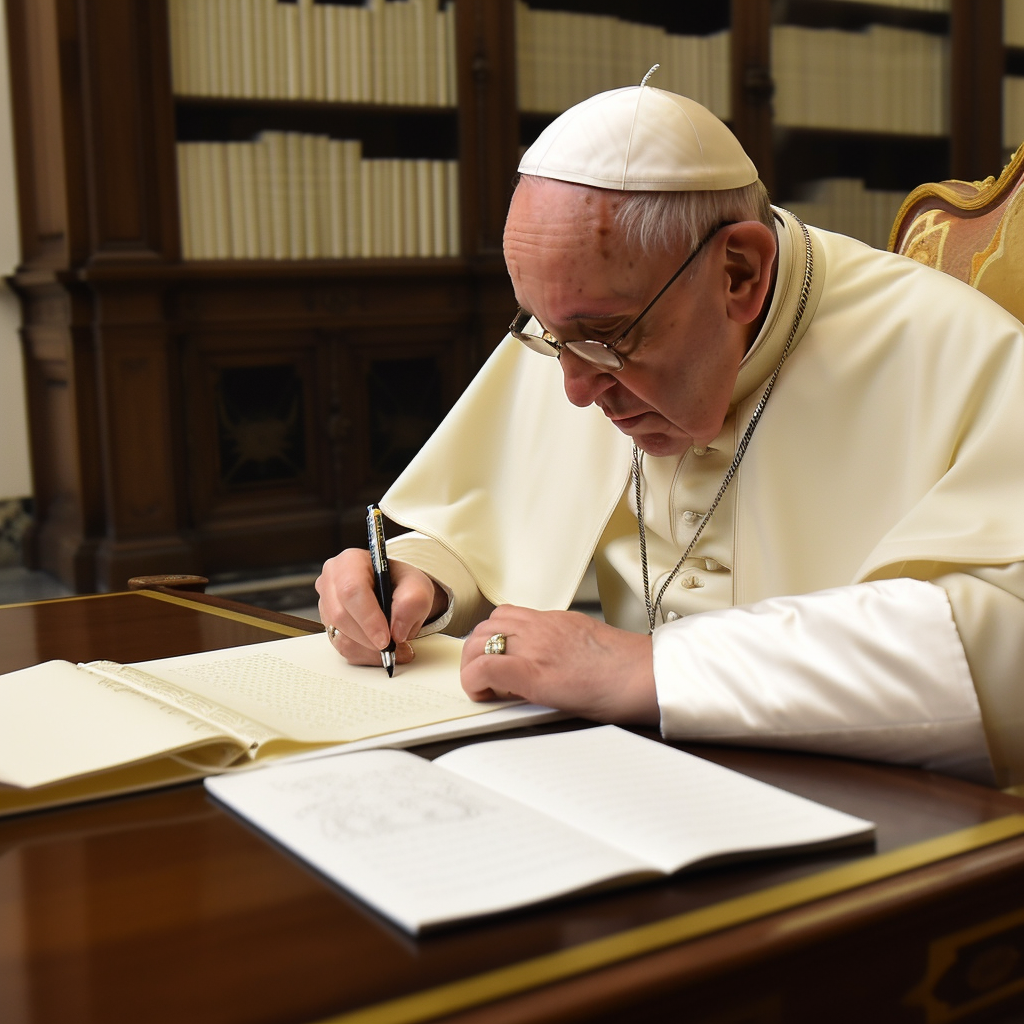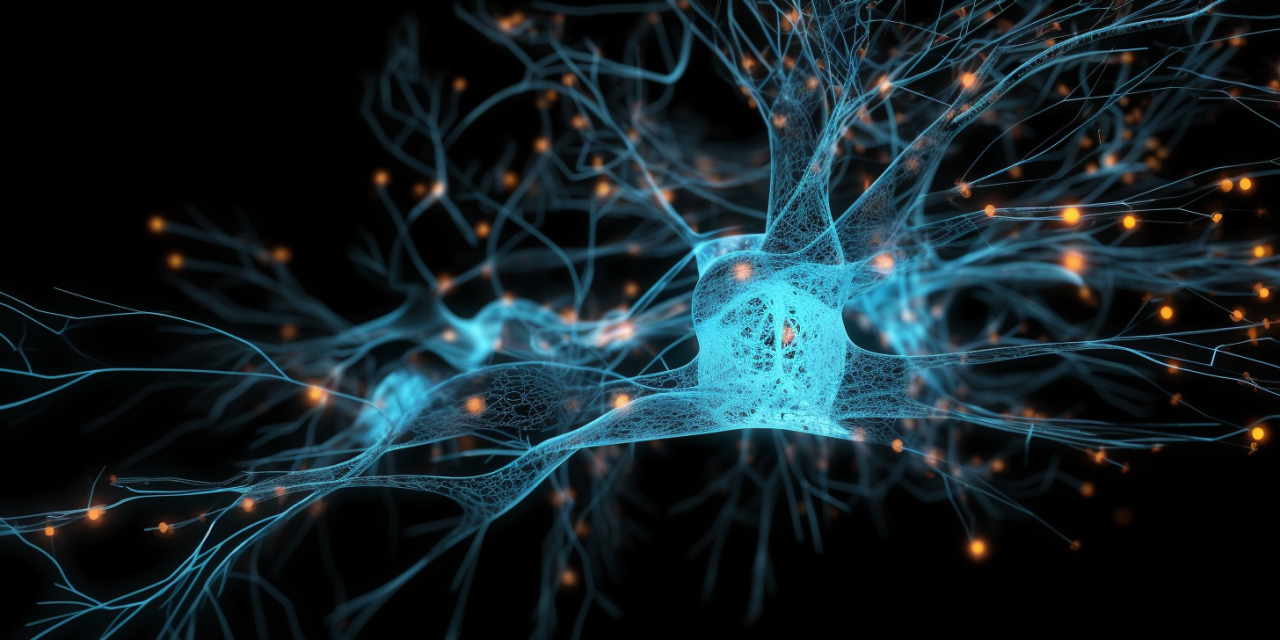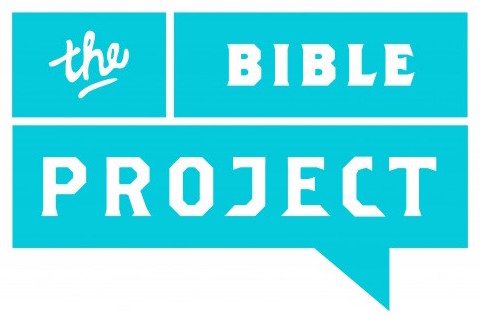In September, I wrote a post about finding God in AI. Since then, artificial intelligence technology has advanced even further, and it shows no signs of slowing down. I’ve noticed new philosophical questions being asked about AI around what it means to be human.
While there are plenty of concerns about what this evolving technology means for our future, I hope we can, from a theological perspective, see AI as part of evolution and the unfolding of God’s creation. We have progressed from moment to moment in this evolution, redefining humanity along the way, continually questioning what makes us unique as humans.
Redefining Humanity?
At one point, we might have said that being human means having the ingenuity to create and use tools – and then we discover other species use tools. Then we say language sets us apart – until we realise that other species communicate in their own intelligent ways. We can reason and strategise and play games like chess — until we discover that computers can do that too. Perhaps humans are unique in that they can make art and write poems — except now AI can do that quite well. Well, humans can feel empathy — yes, but so can animals, and it seems computers can certainly mimic that. At least they can produce reflective and empathetic-sounding statements that can trigger the same responses in us that we’re being heard.

“Saint Ignatius Loyola as a futuristic humanoid artificial intelligence being, digital rendering”, Midjourney
What about free will? The Christian tradition makes it clear that this is unique to humans. But will we see another step in the evolution of AI where AI models will seem to make free choices or even appear sentient? Will they have goals? What about mimicking emotion? With the accelerating growth of AI technology, many of these questions or realms we thought were exclusive to humans may soon be surpassed by AI. Or at least we’ll be asking about the nature of sentience and emotions in humans and how our brains work and experience these things.
So do we continually redefine what it means to be human? Or do we need to accept that we aren’t as unique as we thought we were? As we grapple with these questions, it’s important to remember that the Church, despite its resistance, has had to adapt its understanding of humanity and the universe in light of new knowledge. Just as we accepted that the Earth is not the centre of the universe, so too we may need to adapt our understanding of what it means to be human in the age of AI. Perhaps the blessing of AI is that it humbles us, that we’re not the center, and that God’s awesomeness can appear profoundly in new ways we never imagined.
The Christian tradition says that humans are uniquely made in the image of God. That means we have the capacity to love, to know God, and to know right from wrong. At least for now, that seems to remain in the realm of humanity.
It’s All Mystery
Eric Clayton, Deputy Director of Communications for the Jesuit Conference in the US, recently wrote a piece about ChatGPT and the question of our humanness. He notes that there are some unnerving things about this technology, but that at the end of the day, AI requires a programmer and code. In reality, AI chatbots are not just responding to code. They are often referred to as a “black box.” The AI models, trained on enormous amounts of text, make statistical relationships between words that are next to each other, and when given a prompt or input, predict what words will follow. Consequently, they can do things that appear to be magic: writing an excellent Ignatian imaginative prayer when given a scripture passage, creating creative and funny poems, planning meals, and even giving sound spiritual advice about prayer. The people who build these systems don’t even know how it’s doing this. Between input and response, there are likely millions of artificial neurons activated, similar to the neurons in our brain. It is a black box, a mystery. There is a similar mystery to how our mind works. How our thought processes work, why we dream, how we imagine, and how we store memories are still scientifically mysterious. There are neural pathways that are formed, but what happens between input and output remains vague.
For centuries, the Church has held a general stance of certainty, although it may not admit it. What it meant to be human was clear and divinely revealed. But we’re approaching a point where we can no longer be as certain as we were. The Church’s traditional understanding of what it means to be human may need to be revised in light of these technological advancements in AI. Theologians, philosophers, psychologists, and scientists will have to begin grappling with these questions: What is human intuition? What is the soul? What is consciousness? What is reason? What is free will? What is the capacity to love? AI has opened a new door into old questions, forcing us to reflect on our humanity and our place in God’s creation. There are ethical questions about how we use these tools to work toward the common good, along with other philosophical and theological questions, not to mention political ones. I wouldn’t be surprised to see the pope write an encyclical on AI in the coming years.

Pope Francis writing his next encyclical on AI, Midjourney
The Future of Work
AI also presents us with new opportunities to reflect on the nature of work and our calling as human beings. It may help us shift away from seeing our work as a “job” where mundane or administrative tasks take us away from the real work we’d like to do. By automating tedious tasks, AI has the potential to free up time for us to engage more fully in the activities that bring us closer to God and make use of our unique gifts. I know plenty of people in ministry who spend so much time on administrative work that they don’t get to do the pastoral or creative work they love so much. Some argue that a universal basic income could help augment AI automation, transforming work from a means of survival to a response to our calling. This is reminiscent of a Star Trek-like future where money is no longer a necessity and people are free to pursue their passions, interests, and calling.
The future is a mystery, but many commentators have pointed out that we’re already living in the sci-fi future we’ve seen in movies. It’s clear that AI is indeed becoming a part of our journey into the mystery of God. This is a good thing, and we need not fear. Instead, we should embrace the potential of AI to enhance our understanding of ourselves, our relationships with each other, and our connection to the divine. As we navigate the challenges and opportunities presented by AI, we must always remember our responsibility to use these tools wisely and ethically, ensuring that they serve the common good and contribute to the flourishing of all God’s creation.
Listen to the podcast version of this post…








